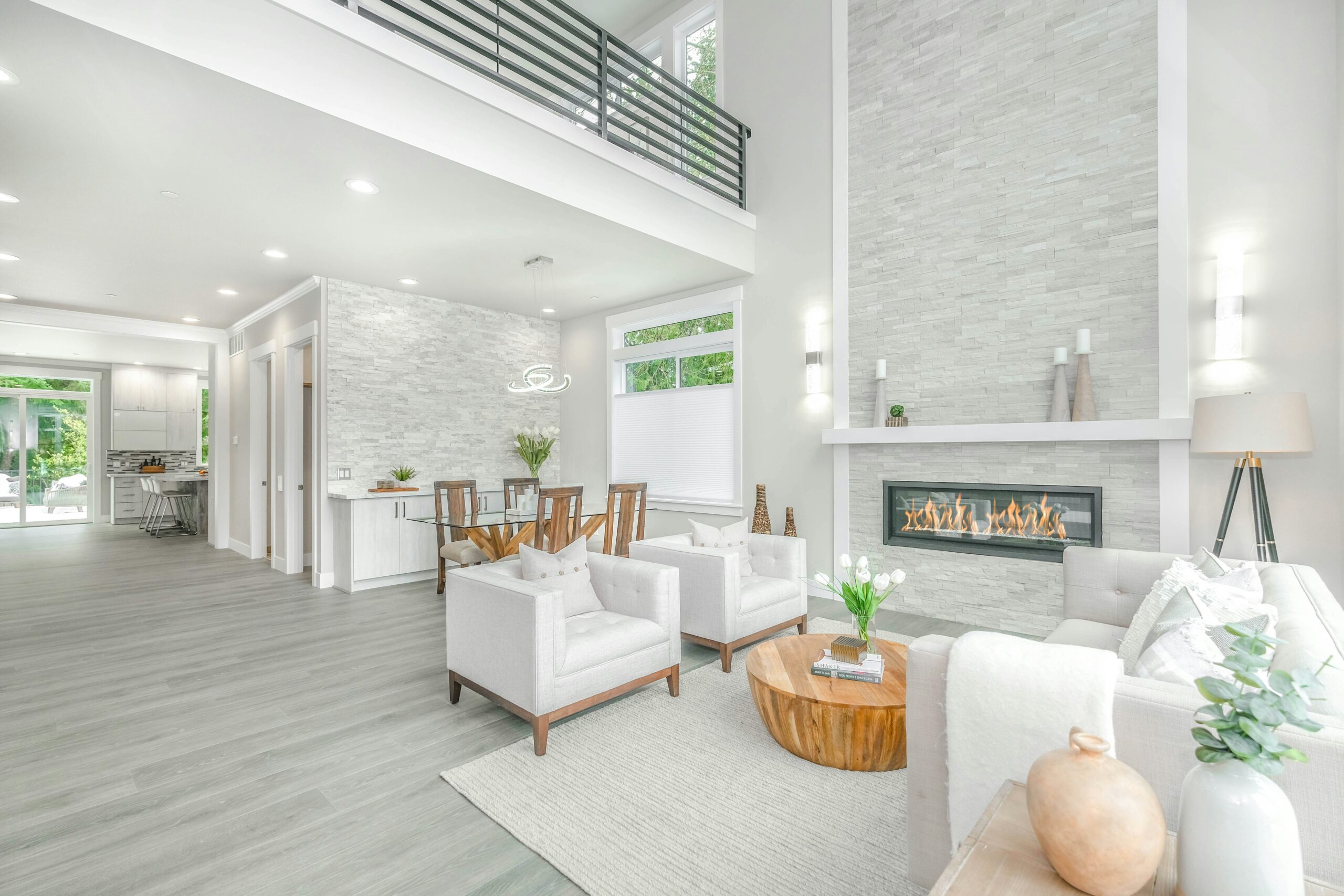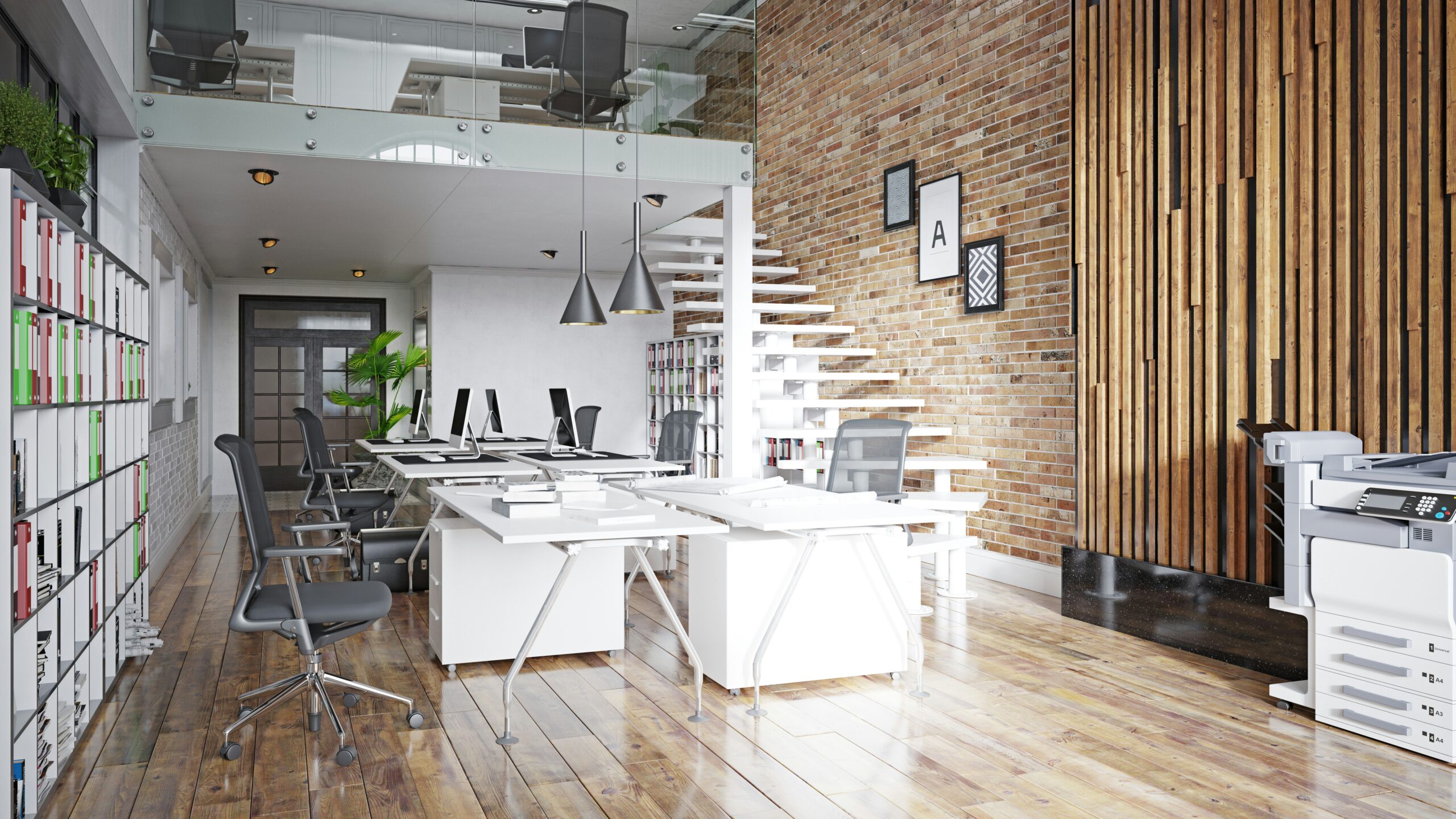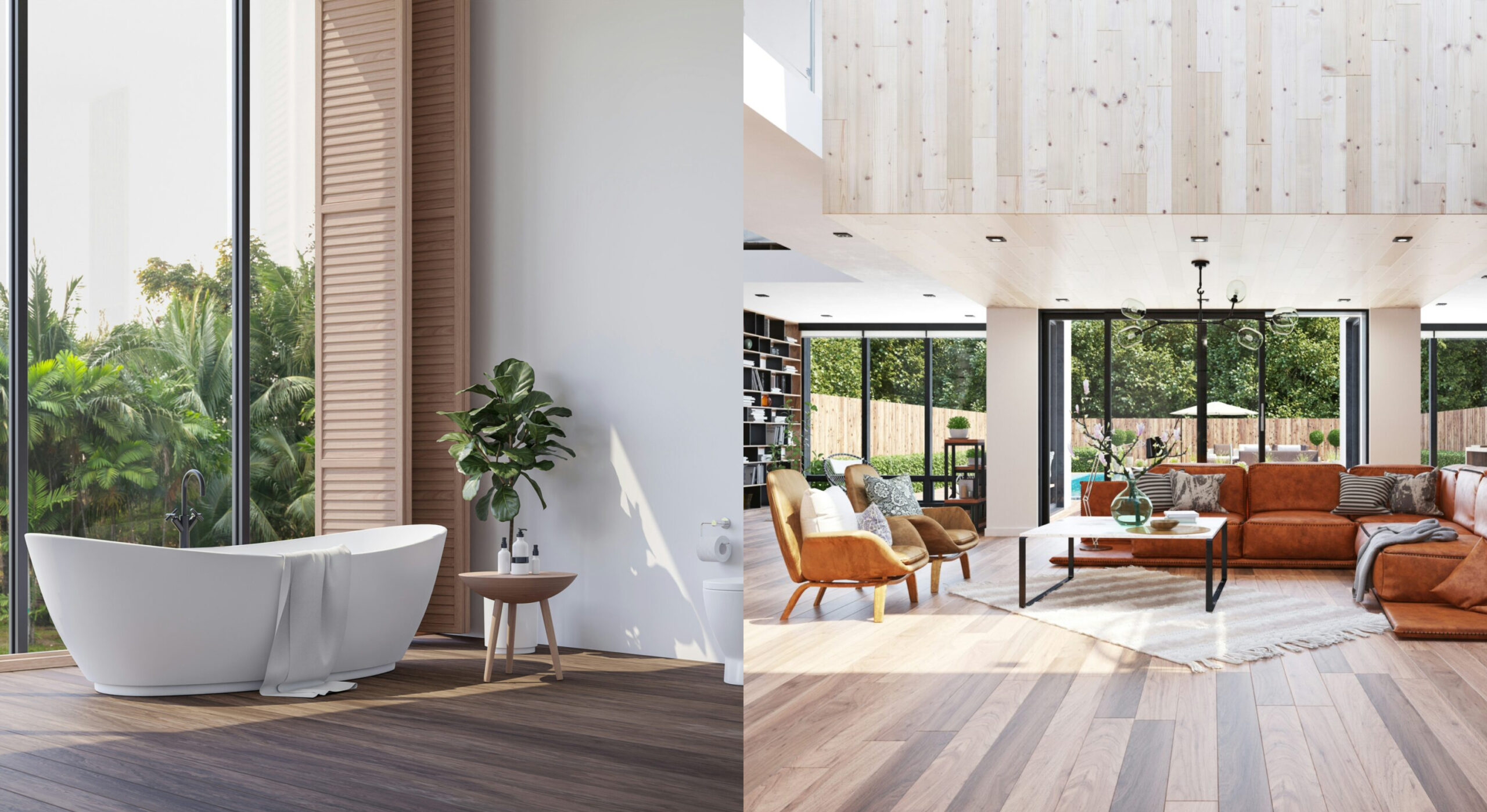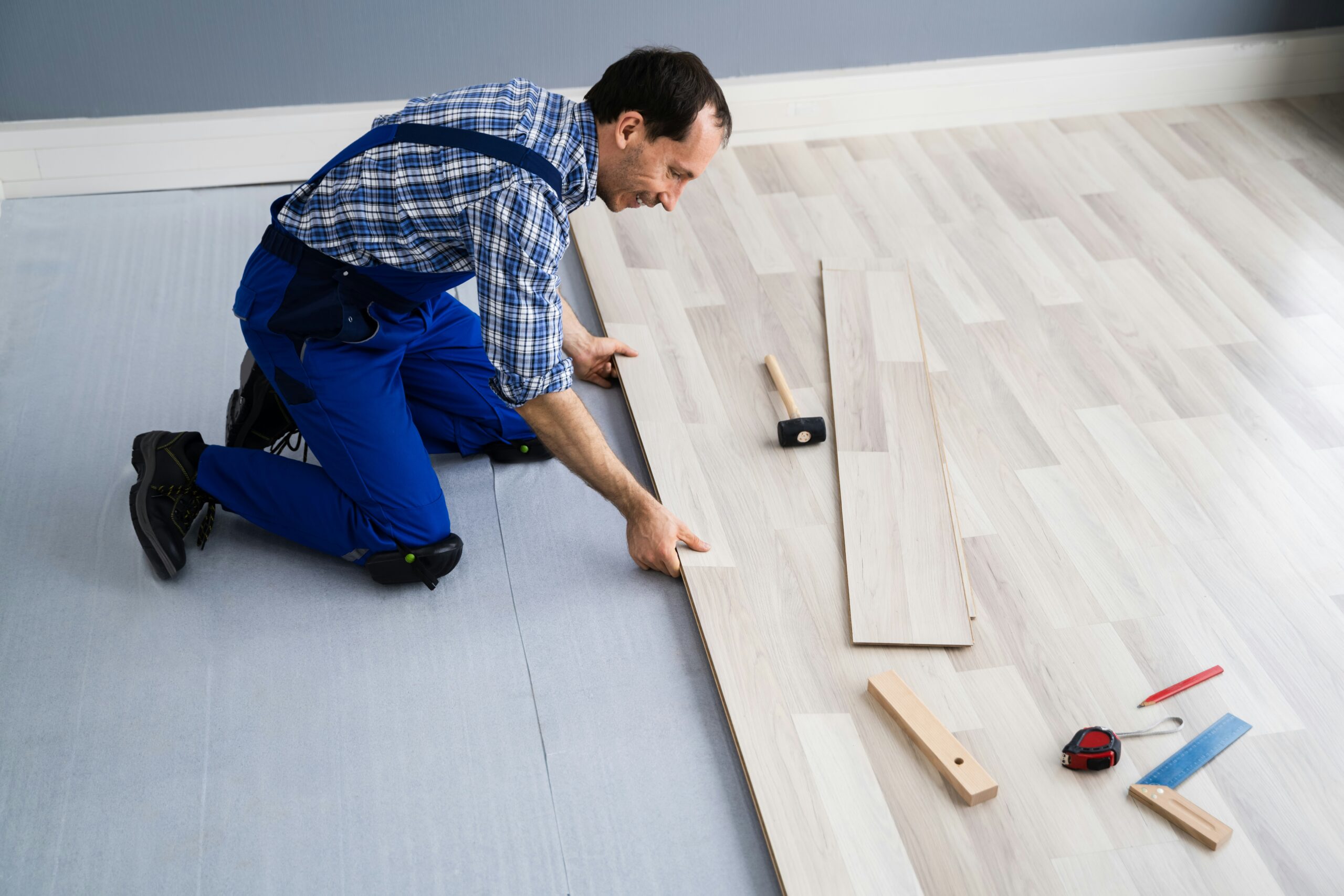Vinyl flooring has gained immense popularity among homeowners and business owners due to its exceptional durability, affordability, and aesthetic versatility. Among the various options available, SPC (Stone Plastic Composite) and WPC (Wood Plastic Composite) vinyl flooring have emerged as two leading contenders. While both types are waterproof and visually appealing, they cater to different needs and preferences. This article dives deep into the features, benefits, and distinctions of SPC and WPC vinyl flooring, helping you make an informed decision for your space.

What Is SPC Vinyl Flooring?
SPC vinyl flooring, also referred to as rigid core vinyl flooring, is an engineered product composed of a dense core made from limestone, polyvinyl chloride (PVC), and stabilizers. This unique composition gives SPC its exceptional rigidity and durability, making it a top choice for high-traffic and commercial areas.
Key Features of SPC Vinyl Flooring:
- Waterproof Performance: One of the most notable attributes of SPC flooring is its 100% waterproof nature. This makes it a suitable choice for moisture-prone areas such as kitchens, bathrooms, basements, and even laundry rooms.
- Rigid Core Stability: The rigid core enhances dimensional stability, ensuring the flooring remains intact under heavy furniture, appliances, or high foot traffic. This characteristic also minimizes expansion and contraction due to temperature or humidity fluctuations.
- Scratch and Dent Resistance: SPC vinyl is highly resistant to scratches and dents, making it ideal for homes with pets or children and commercial spaces with significant wear and tear.
- Ease of Installation: SPC flooring typically features a convenient click-lock installation system. DIY enthusiasts and professional installers alike appreciate how simple and time-efficient it is to lay down.
- Pre-Attached Underlayment: Many SPC products come with a pre-attached underlayment, which improves sound absorption and adds comfort underfoot.
For high-quality SPC vinyl options, explore SPC Flooring Los Angeles to discover styles that match your design preferences.

What Is WPC Vinyl Flooring?
WPC vinyl flooring, short for wood plastic composite, offers a unique combination of durability and comfort. Its core is made of wood pulp and plastic composites, resulting in a lightweight yet resilient flooring option. WPC vinyl is particularly appreciated in residential settings where comfort and sound insulation are prioritized.
Key Features of WPC Vinyl Flooring:
- Comfort Underfoot: WPC flooring provides a softer, more cushioned feel compared to SPC. This is particularly appealing for spaces like bedrooms, living rooms, and areas where you spend extended periods standing.
- Sound Insulation: Thanks to its foamed core, WPC flooring offers superior sound absorption. This makes it an excellent choice for multi-story homes, apartments, or offices.
- Waterproof Capability: Like SPC, WPC flooring is fully waterproof, making it suitable for kitchens, bathrooms, and other areas exposed to moisture.
- Flexibility: WPC’s slightly softer core allows for more flexibility, making it forgiving on uneven subfloors. This can reduce the time and cost involved in subfloor preparation during installation.
- Design Versatility: WPC vinyl flooring comes in a wide range of designs, mimicking the look of natural wood, stone, and other materials.
Check out the extensive selection at WPC Flooring Los Angeles to find a product that fits your style and functional needs.

Comparing SPC and WPC Vinyl Flooring
Choosing between SPC and WPC vinyl flooring depends on several factors, including your specific needs, the intended use of the space, and your budget. Below is a comprehensive comparison to help you decide.
Durability
SPC flooring has a denser and more rigid core, making it highly resistant to dents, scratches, and wear. This makes it a top choice for commercial spaces and high-traffic areas in homes. On the other hand, WPC flooring, while durable, is slightly less resistant to heavy impacts due to its softer core.
Comfort
When it comes to comfort underfoot, WPC flooring has the upper hand. Its foamed core provides a cushioned feel, which is ideal for residential spaces like bedrooms and living rooms. SPC flooring, though durable, lacks this level of softness.
Sound Insulation
WPC flooring excels in sound absorption, making it suitable for apartments or multi-level homes where noise reduction is essential. SPC flooring offers moderate sound insulation but cannot match the noise-dampening properties of WPC.
Cost
SPC flooring is generally more affordable than WPC, making it a budget-friendly choice without compromising on quality. If you prioritize comfort and sound insulation, the slightly higher cost of WPC flooring may be worth the investment.
Applications
- SPC Flooring: Perfect for high-traffic areas, commercial spaces, and rooms exposed to heavy furniture or appliances.
- WPC Flooring: Ideal for residential spaces prioritizing comfort, such as living rooms, bedrooms, and family areas.
For personalized recommendations, visit Flooring Store El Monte or Flooring in El Monte to explore tailored solutions for your space.

Installation Tips for Vinyl Flooring
Proper installation is crucial to ensure your vinyl flooring performs optimally and lasts for years. Whether you choose SPC or WPC, here are some essential installation tips:
- Prepare the Subfloor: Ensure the subfloor is clean, dry, and level. While SPC flooring can handle minor imperfections, a smooth surface ensures the best results for both SPC and WPC flooring.
- Acclimate the Flooring: Allow the flooring planks to acclimate to the room’s temperature and humidity for at least 48 hours before installation. This prevents issues like expansion or contraction post-installation.
- Use Appropriate Tools: High-quality tools for cutting, fitting, and aligning planks can make a significant difference in achieving a professional finish.
- Follow Manufacturer Guidelines: Always adhere to the manufacturer’s instructions for installation to avoid voiding warranties or compromising performance.
- Plan the Layout: Before starting, plan the plank layout to ensure a balanced and aesthetically pleasing design, especially in visible areas.
To avoid common errors, review the Installation Guide for Vinyl Flooring and learn from the 10 Common Mistakes in Vinyl Floor Installation.

Maintenance and Longevity
Both SPC and WPC vinyl flooring are designed to be low-maintenance, making them ideal for busy households and commercial spaces. Here are some tips to extend the life of your flooring:
- Regular Cleaning: Sweep or vacuum regularly to remove dirt and debris that could scratch the surface.
- Use Gentle Cleaners: Avoid harsh chemicals and opt for pH-balanced vinyl floor cleaners.
- Protect Against Furniture: Use felt pads under furniture legs to prevent dents or scratches.
- Address Spills Promptly: Wipe up spills immediately to avoid stains, even though the flooring is waterproof.
- Avoid Dragging Heavy Items: Lift furniture or use sliders to move heavy items across the floor.
SPC and WPC vinyl flooring each bring unique strengths to the table, catering to different preferences and functional requirements. If durability and affordability are your priorities, SPC flooring stands out as a robust choice for high-traffic and commercial spaces. On the other hand, WPC flooring offers unmatched comfort and sound insulation, making it ideal for residential settings.
When deciding between the two, consider factors like foot traffic, comfort needs, and budget. For high-quality vinyl flooring solutions in Los Angeles and El Monte, explore the extensive range at MMY Flooring. With expert guidance and an impressive selection of styles and finishes, you can confidently find the perfect flooring to enhance your home or business.
